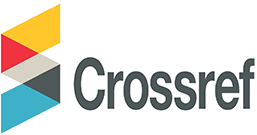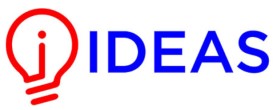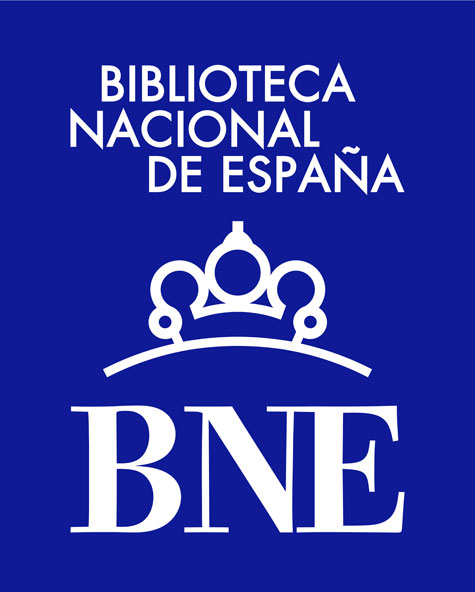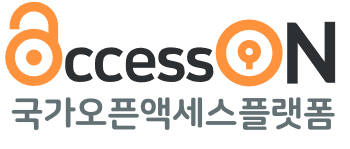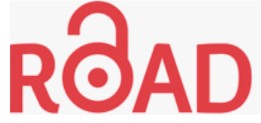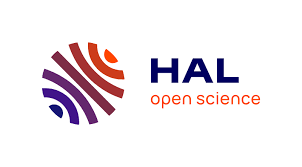Ser um bom professor em tempos de mudança: o exemplo da Macedônia (Norte)
DOI:
https://doi.org/10.51896/easc.v1i2.332Palavras-chave:
Política educacional, profissionais da educação, Macedônio, neoliberalismo, Macedônia do Norte, mudança social, professorResumo
Este artigo apresenta resultados sobre a situação dos professores no sistema educativo da Macedónia do Norte, um país recente; existe apenas há 30 anos como um estado-nação legislativamente. Existe uma enorme lacuna na investigação relativa à Macedónia (do Norte) em muitos aspectos. Tal como noutros países europeus, o sistema escolar transforma-se graças ao desenvolvimento do neoliberalismo, mas também às inúmeras mudanças que ocorreram após o fim da Jugoslávia. Como a política tem um forte efeito sobre a escolaridade dentro dos sistemas burocráticos, é importante olhar para a situação actual, no Estado nacional moderno, em comparação com a situação anterior, como uma região da RSFJ (República Social Federal da Jugoslávia). Para investigar o papel dos professores na implementação de políticas educacionais, foram entrevistados professores que estudaram (e trabalharam) na época da Macedônia Iugoslava. Os dados qualitativos foram analisados por meio de análise de conteúdo. As recentes transformações através de mudanças na Nova Gestão Pública e as pressões globais sobre a educação tornam-se visíveis. Particularmente visíveis são a erosão da confiança e o declínio do reconhecimento social da profissão docente.
Downloads
Referências
Akremi, L. (2014): Stichprobenziehung in der qualitativen Sozialforschung. In Baur, N. & Blasius, J. (eds.), Handbuch Methoden der empirischen Sozialforschung (pp. 265-282). Springer.
Altrichter, H. & Maag Merki, K. (2016). Steuerung der Entwicklung des Schulwesens. In Altrichter, H. & Maag Merki, K. (eds.), Handbuch Neue Steuerung im Schulsystem (pp. 15-40). Springer.
Altrichter, H. (2019). The emergence of evidence-based governance models in the state-based education systems of Austria and Germany. In Altrichter, H, World Yearbook of Education 2020 (pp. 72–96). Routledge.
Apple, M. (2006). Educating the “right” way. Markets, Standards, God, and inequality. Routledge. https://doi.org/10.4324/9780203112847
Atanasoska, T. (2019). Deutsch in der Sekundarstufe – das Beispiel ‘Eksterno Testirajne‘ in Mazedonien (FYROM). In Middeke, A., Sava, D. & E. Tichy (eds.), Germanistische Diskurs- und Praxisfelder in Mittelosteuropa. Berufssprache Deutsch in Theorie und Praxis, Vol. 3 (pp. 97-110). Peter Lang.
Atanasoska, T. (2020). DaF-LehrerIn werden in Europa: Ein Vergleich zwischen Schweden und Nordmazedonien. Zeitschrift für Interkulturellen Fremdsprachenunterricht, 25(1), pp. 725–755. https://zif.tujournals.ulb.tu-darmstadt.de/article/id/3251/
Atanasoska, T. (2023a). Bildung als Ware. Neoliberale Entwicklungen in der Schule am Beispiel Schweden und Nordmazedonien. In Bünger, C., Chadderton, C., Czejkowska, A. et al. (eds.), 30 Jahre (und kein) Ende der Geschichte. Jahrbuch für Pädagogik 2022 (pp. 31-44). Beltz.
Atanasoska, T. (2023b, in print). Lehrer: in sein in Jugoslawien und danach: Das Beispiel (Nord) Mazedonien. In Göttlicher, W. & Janík, T., Politische Zäsur und Wandel des Schulsystems. Drei Dekaden nach dem Fall des Eisernen Vorhangs: Bilanzen und Perspektiven.
Ball, S. (2012). Global Education Inc. New policy networks and the neo-liberal imagery. Routledge.
Becks, C., Göttlicher, W. & Ehrhardt, S. (2023, in print). Schule in den ersten drei Dekaden nach dem Fall des Eisernen Vorhangs. Bilanzen und Perspektiven. In Göttlicher, W. & Janík, T.: Politische Zäsur und Wandel des Schulsystems. Drei Dekaden nach dem Fall des Eisernen Vorhangs: Bilanzen und Perspektiven, no p.
Bellmann, J. & Weiß, M. (2009). Risiken und Nebenwirkungen Neuer Steuerung im Schulsystem. Theoretische Konzeptualisierung und Erklärungsmodelle. Zeitschrift für Pädagogik, 55(2), pp. 286-308. https://doi.org/10.25656/01:4251
Bellmann, J., Duzevic, D., Schweizer, S. & Thiel, C. (2016). Nebenfolgen Neuer Steuerung und die Rekonstruktion ihrer Genese. Differente Orientierungsmuster schulischer Akteure im Umgang mit neuen Steuerungsinstrumenten. Zeitschrift für Pädagogik, 62(3), pp. 381-402. https://doi.org/10.25656/01:16764
Besley, A. C. & Peters, M. A. (2007). Subjectivity and truth: Foucault, education and the culture of self. Peter Lang.
Biesta, G., Priestley, M. & Robinson, S. (2015). The role of beliefs in teacher agency. Teachers and Teaching. Theory and Practice, 21(6), pp. 624-640. https://doi.org/10.1080/13540602.2015.1044325
Bigestans, A. (2015). Utmaningar och möjligheter för utländska lärare som återinträder i yrkeslivet i svensk skola (Dissertations in Language Education 5). Stockholm University.
Bohl, T. & Beck, N. (2020). Aktuelle Entwicklungen in der institutionalisierten Lehrerinnen- und Lehrerbildung. In C. Cramer, J. König, M. Rothland & S. Blömeke (Eds.), Handbuch Lehrerinnen- und Lehrerbildung (pp. 280-289). UTB.
Brante, G. (2009). Multitasking and synchronous work: Complexities in teacher work. Teaching and Teacher Education: An International Journal of Research and Studies, 25(3), pp. 430-436. https://doi.org/10.1016/j.tate.2008.09.015
Brüsemeister, T. & Eubel, KD. (2003). Einleitung. In Brüsemeister, T., Eubel, KD. (eds.), Zur Modernisierung der Schule. Leitideen, Konzepte, Akteure. Ein Überblick (pp. 15-37). Transcript.
Calic, M. J. (2019): A History of Jugoslavia. Purdue University Press
Cochran-Smith, M. (2015). Att bevara komplexiteten i läraryrket: policy, forskning och praxis. Venue, 4(2), pp. 1-7. https://doi.org/10.3384/venue.2001-788X.15411
Colnerud, G. & Granström, K. (2015). Respekt för lärarprofessionen: om lärares yrkesspråk och yrkesetik. Liber.
Cribb, A. & Gewirtz, S. (2007). Unpacking Autonomy and Control in Education: Some Conceptual and Normative Groundwork for a Comparative Analysis. European Educational Research Journal 6(3), pp. 203-213. https://doi.org/10.2304/eerj.2007.6.3.203
Dengel, S. (2005). Untertan, Volksgenosse, Sozialistische Persönlichkeit, Politische Erziehung im Deutschen Kaiserreich, dem NS-Staat und der DDR. Campus Verlag.
Deters, P. (2011). Identity, agency and the acquisition of professional language and culture. Continuum International Publishing Group.
Edelsky, C. (2006). With Literacy and Justice for All: Rethinking the Social in Language and Education. Erlbaum.
Fend, H. (1998). Qualität im Bildungswesen. Juventa.
Freidson, E. (2001). Professionalism. The Third Logic. The University of Chicago Press.
Fuller, K. & Stevenson, H. (2019). Global education reform: understanding the movement. Educational Review, 71(1), pp. 1-4. https://doi.org/10.1080/00131911.2019.1532718
Gehrmann, A. & Hübner, P. (1997). Sozialer Wandel statt Transformation? Über den Zusammenhang von beruflicher Zufriedenheit und schulinternen Wirkungsmechanismen bei Lehrerinnen und Lehrern im vereinigten Berlin. In Tenorth, H. E. (ed.), Kindheit, Jugend und Bildungsarbeit im Wandel (pp. 375-382). Beltz.
Hargreaves, A., & Fullan, M. (2012). Professional Capital: Transforming Teaching in Every School. Teachers College Press.
Helsper, W. (2008). Schulkulturen –die Schule als symbolische Sinnordnung. Zeitschrift für Pädagogik, 54(1), pp. 63–80. https://doi.org/10.25656/01:4336
Hoyle, E. & Wallace, M. (2009). Leadership for professional practice. In Gewirtz, S., Mahony, P. & Cribb, A. (eds.), Changing teacher professionalism. International trends, challenges and ways forward (pp. 67-80). Routledge.
Janík, T. & Porubsky, Š. (2020): Curriculum changes in the Visegrad Four countries three decades after the fall of communism. In Janík, T., Porubský, Š., Chrappán, M. & Kuszak, K. (eds.), Curriculum changes in the Visegrad Four: three decades after the fall of communism: studies from Hungary, Poland, the Czech and Slovak Republics (pp. 15-30). Waxmann.
Kepeski, K. (1946). Македонска граматика. (Makedonska gramatika). Skopje: Mazedonischer Staatsverlag.
Lohmann, I. (2014). Bildung am Ende der Moderne. Beiträge zur Kritik der Privatisierung des Bildungswesens. Universität Hamburg.
Loosen, W. (2014). Das Leitfadeninterview – eine unterschätzte Methode. In Averbeck-Lietz, S., Meyen, M. (eds): Handbuch nicht standardisierte Methoden in der Kommunikationswissenschaft. Wiesbaden: Springer VS. https://doi.org/10.1007/978-3-658-05723-7_9-1
Lubienski, C. (2009). Do quasi-markets foster innovation in education? A comparative perspective. (Education Working Papers, 25). OECD Publishing. https://files.eric.ed.gov/fulltext/ED530731.pdf
Mayring, P. (2010). Qualitative Inhaltsanalyse. Grundlagen und Techniken. Beltz.
Mayring, P. (2023). Das problemzentrierte Interview. In Mayring, P., Einführung in die qualitative Sozialforschung: eine Anleitung zu qualitativem Denken (pp. 60-64). Beltz.
Mensching, A. (2018). Strukturationstheoretische Grundlagen der Organisationspädagogik. In Göhlich, M., Schröer, A. & Weber, S. M. (eds.), Handbuch Organisationspädagogik (pp. 199-210). Springer.
Meyer, HD. & Benavot, A. (2013). PISA and the Globalization of Education Governance: some puzzles and problems. In Meyer, HD. & Benavot, A. (eds.), PISA, Power, and Policy: The emergence of global educational governance (pp. 7-26). Symposium Books.
Moos, L. (2009). Hard and soft governance: The journey from transnational agencies to school leadership. European Educational Research Journal, 8(3), pp. 397-406. https://doi.org/10.2304/eerj.2009.8.3.397
Olssen, M., Codd, J., & O’Neill, A.M. (2004). Education Policy. Globalization, citizenship & democracy. SAGE.
Parreira do Amaral, M. (2015). Methodologie und Methode in der International Vergleichenden Erziehungswissenschaft. In Parreira do Amaral, M. & Amos, S. (eds.), Internationale und vergleichende Erziehungswissenschaft: Geschichte, Theorie, Methode und Forschungsfelder (pp. 107-13). Waxmann.
Peck, C.A., Gallucci, C., & Sloan, T. (2010). Negotiating implementation of high-stakes performance assessment policies in teacher education: From compliance to inquiry. Journal of Teacher Education, 61(5), pp. 451-463. https://doi.org/10.1177/0022487109354520
Popovic, M., Majsova, N. & Anastasova, S. (2021). Memory landscapes in (post)Yugoslavia. The case of North Macedonia. The Historical Expertise, (25), pp. 186-208. https://hal.science/hal-03384721
Posch, P. & Altrichter, H. (2020). Qualitätsmanagement im Kontext österreichischer Schulentwicklung. In Schörg, CC. & Sippl, C. (eds.), Die Verführung zur Güte: Beiträge zur Pädagogik im 21. Jahrhundert. Festschrift für Erwin Rauscher (pp. 99-110). Studien Verlag.
Radtke, F. O. (2019). Erziehungsdienstleister und ihre Kunden. In Exklusive Bildung und neue Ungleichheit. Ergebnisse der DFG-Forschergruppe “Mechanismen der Elitebildung im deutschen Bildungssystem” (pp. 299-315). Beltz Juventa.
Rizova, E., Bekar, M. & Velkovski, Z. (2020). Educational Challenges of Roma Minorities: The Case of the Republic of North Macedonia. International Journal of Cognitive Research in Science, Engineering and Education, 8(3), pp. 113-122. https://doi.org/10.23947/2334-8496-2020-8-3-113-122
Rothland, M. (2013): Soziale Unterstützung. Bedeutung und Bedingungen im Lehrerberuf. In Rothland, M. (ed.), Belastung und Beanspruchung im Lehrerberuf. Modelle, Befunde, Interventionen. (pp. 231-250). Springer.
Sachs, J. (2001). Teacher professional identity: Competing discourses, competing outcomes. Journal of Education Policy, 16(2), pp. 149-161. https://doi.org/10.1080/02680930116819
Sahlberg, P. (2014). Finnish Lessons 2.0: What Can the World Learn from Educational Change in Finland? Teachers College Press.
Schmid, K., Hafner, H. & Pirolt, R. (2007). Reform von Schulgovernance-Systemen. Vergleichende Analyse der Reformprozesse in Österreich und bei einigen PISA-Teilnehmerländern. Forschungsbericht.
Schon, D. A. (1991). The reflective practitioner: How professionals think in action. Ashgate Publishing Ltd.
Sharlamamov, K. & Mitevska Petrusheva, K. (2023). The Challenges in Education System in North Macedonia. International Journal of Social Science and Human Research, 6(3), pp. 1398-1503. https://doi.org/10.47191/ijsshr/v6-i3-21
Stenlås, N. (2009). En kår i kläm: Läraryrket mellan professionella ideal och statliga reformideologier. Rapport till Expertgruppen för studier i offentlig ekonomi 2009(6). Regeringskansliet / Finansdepartementet. https://eso.expertgrupp.se/rapporter/20096-en-kar-i-klam-lararyrket-mellan-professionella-ideal-och-statliga-reformerideologier/ [12.01.2022].
Treneska-Deskoska, R. (2017). Accommodating Multilingualism in Macedonia. Social Inclusion, 5(4), pp. 60-68. https://doi.org/10.17645/si.v5i4.1129
Verger, A., Fontdevila, C. & Zancajo, A. (2016). The privatization of education: A political economy of global education reform. Teachers College Press.
Vigoda, E. (2003). New public management. In Rabin, L J. (Ed.), Encyclopedia of public administration and public policy (Vol. 2). Marcel Dekker.
Wienecke, M. (2021). Wohin mit der sozialistischen Persönlichkeit? Transformatives Lehren und Lernen von Geographielehrkräften in Ostdeutschland. Universität Potsdam.
Ydesen, C. & Andreasen, K.E. (2020). Historical Roots of the Global Testing Culture in Education. Nordic Studies in Education, 40(2), pp. 149-166. https://doi.org/10.23865/nse.v40.2229
Downloads
Publicado
Versões
- 2023-12-01 (2)
- 2023-11-30 (1)
Como Citar
Edição
Seção
Licença

Este trabalho está licenciado sob uma licença Creative Commons Attribution-NonCommercial 4.0 International License.
Usted es libre de:
- Compartir — copiar y redistribuir el material en cualquier medio o formato
- Adaptar — remezclar, transformar y construir a partir del material
Bajo los siguientes términos:
- Atribución — Usted debe dar crédito de manera adecuada, brindar un enlace a la licencia, e indicar si se han realizado cambios. Puede hacerlo en cualquier forma razonable, pero no de forma tal que sugiera que usted o su uso tienen el apoyo de la licenciante.
- NoComercial — Usted no puede hacer uso del material con propósitos comerciales.




